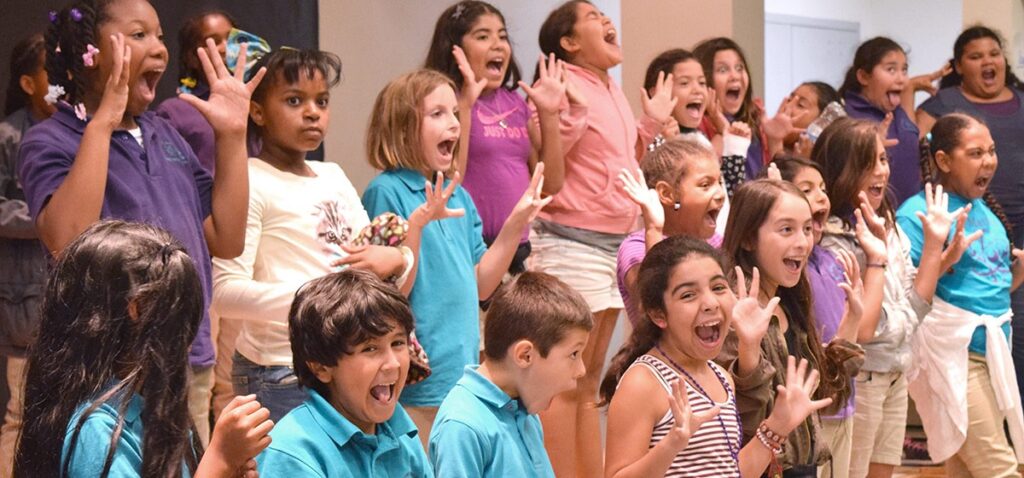According to a new study from the University of Southern California (USC) on the impact of music education, the benefits for teens seem to extend beyond increased neural connections in the brain. It increases their well-being.
The study, published Wednesday by the journal Frontiers In Psychology, comes just weeks after voters statewide approved Proposition 28, which would increase funding for arts and music classes in California’s public schools.
Researchers at USC Thornton School of Music say the findings are especially important given the nationwide mental health crisis.

“We know the pandemic is taking a toll on the mental health of students. It paints a bleak picture of what we call the ‘broken generation,'” said Beatriz Ilari, associate professor of music education at USC Thornton School of Music and the study’s corresponding author. . “Music can be an activity that helps students develop their skills and abilities, explore their emotions, work on their identities, and strengthen their connections with their school and community.”
While many states and school districts have cut teaching hours, faculty, and arts curricula due to budgetary constraints and changing curriculum standards, evidence of the benefits of music education continues to mount.
Ilari has contributed to previous research, including her USC Brain and Creativity Institute longitudinal study showing that children learning musical instruments improve cognitive function. Other research has also shown that music lessons contribute to increased creativity and self-confidence, improved mental health and emotional stability, and improved student achievement, according to the International Journal of Environmental Research and Public Health last year. According to the published paper.
more hope for the future In this study, researchers examined the effects of music on “positive youth development,” a measure of young people’s strengths and potential to contribute to society developed by researchers at Tufts University. The researchers also included measures of school attachment and hopeful future expectations.
Researchers conducted an anonymous online survey of 120 students at 52 middle schools in the Los Angeles Unified School District. Survey questions cover key areas of positive youth development, such as competence and confidence. Previous research has shown that adolescents exhibiting these traits are more likely to contribute positively to society and engage in low-risk behavior later in life. Ilari and her fellow researchers, including USC Thornton alumnus Eun Cho, found many positive effects. As a result, students who began music education before the age of eight were more hopeful for the future, and younger students who received music education scored higher on key indicators of positive adolescent development. It turns out I got the score.
The researchers also found that younger students performed better than their older peers in key developmental activities. For example, the 6th grader performed better than her 8th grader in the adolescent’s overall positive development and scored higher in the confidence domain than both her 7th grader and her 8th grader. Grade 7 also performed better than Grade 8 in overall positive adolescent development.
When responding to survey questions, students go beyond the usual binary gender options such as “non-dual” or “prefer no response” to identify themselves from multiple gender categories. I was asked to choose. Nonbinary students underperformed girls in overall positive adolescent development and connectivity. They also scored lower on confidence and connectedness than boys.
“Given the high levels of depression and suicidal ideation among LGBTQ+ and gender nonconforming students, it is important that research on adolescent well-being goes beyond binary gender distributions,” he said. Ilari said. “In addition to filling critical gaps in the existing literature, our findings can be used to inform the development of programs and policies for all young people.”
This study included students from various backgrounds. However, students participating in virtual music education programs are predominantly from poorer areas, demonstrating differences in access to formal music education.
Additionally, this study examined student engagement in various music programs, including the Virtual Middle School Music Enrichment (VMSME), a tuition-free after-school program focused on popular music education and virtual learning. This program is available through a school district partnership with the Fender Play Foundation.
Researchers have found that students who participate in multiple forms of music education and for longer periods perform better on measures of competence and hopeful future expectations. Division participants signed up for private lessons or performed in small ensembles that offered more individual attention than large group classes.
In contrast, after-school students in her VMSME program were from low-income communities and were less involved in after-school activities. “VMSME has helped democratize music education by extending access to musical instruments and music education to students in socio-economically disadvantaged areas who are often excluded from school music programs.” Ilari said. “During the pandemic, students in public schools, especially in urban areas, have been disproportionately affected by lockdowns that have deprived them of physical and social contact with their peers. We brought together students from different regions at a critical time for development.”
Ilari said more research is needed to better understand differences in access to formal music education, but he said that giving students more autonomy in learning and helping other schools like VMSME Programs that allow people to connect with their peers may facilitate learning and promote good health, he said. – be.



